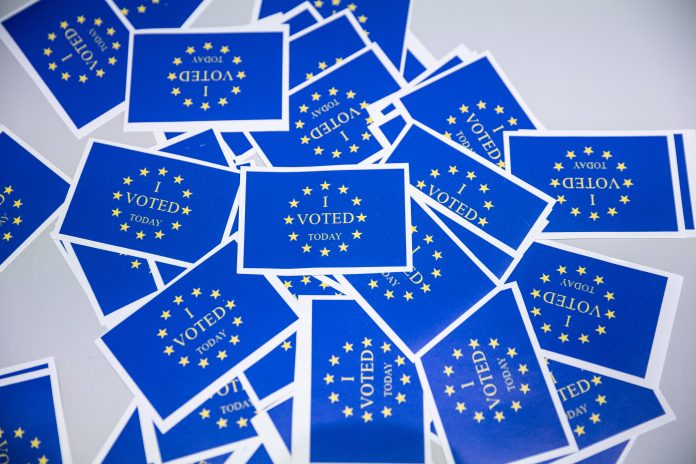If it continues to implement reforms and achieve measurable results, Montenegro could become a full member of the European Union (EU) by the next elections for the European Parliament (EP), allowing its citizens to participate in them and contribute to shaping the future of the EU. It was announced last night at the event “Election Night for the EP Elections.”
At the event, organized by the Delegation of the European Union and the Ministry of European Affairs, with the support of the EU4ME project, EU Ambassador Oana Cristina Popa emphasized that the European elections are one of the most significant democratic events and the only multinational direct elections in the world. She highlighted that these elections empower citizens, strengthen the legitimacy of the EU, and consolidate unity in diversity.
More than 370 million people from 27 member states will vote in the elections, which started yesterday in the Netherlands and will last until Sunday evening. A total of 720 deputies will be elected, with each country having a fixed number of deputies that can enter the EP – Germany, as the largest EU country, will have 96 deputies, and Malta, as the smallest, will have six.
“Based on Montenegro’s ability to implement reforms and firmly stay on the European course, I hope that Montenegrin candidates will soon run for the European Parliament,” Popa said at the event, where attendees had the opportunity to participate in a simulation of voting for the EP.
The ambassador reflected on Montenegro’s intensive work, which is expecting to receive the IBAR and enter the final phase of negotiations: “Montenegro could soon meet the key criteria of the rule of law and decisively improve its prospects for EU membership. However, there is still a lot of important work in these final days, and even more work will be needed until the negotiations are concluded.”
Minister of European Affairs Maida Gorčević spoke about the dedicated work of the administration and emphasized that the adoption of laws necessary for the IBAR, which is expected to be completed in the Montenegrin Parliament today, will show that our country is committed not just declaratively, but substantively, to European integration.
“However, all these results are not just ours – they are the fruit of joint work with our European partners, who have provided us with continuous support, knowledge, and understanding to persevere and give a new strong impetus to the reform processes,” Gorčević said.
The minister expressed great gratitude to the EU and Ambassador Popa, without whom our European integration would not be possible to this extent and capacity in which it is taking place, especially in recent months.
“And finally, I will not speak of hopes but of a firm conviction that by the next European elections, Montenegro will be a full member of the EU, so Montenegrin citizens will also have the opportunity to vote in the next election cycle in the Union, actively participating in making decisions that shape the future of our continent,” Minister Gorčević said.
During Election night, a panel was also organized at the event, where Montenegro’s chief negotiator with the EU, Predrag Zenović, lecturer at the University of Donja Gorica Nikoleta Đukanović, and long-time correspondent for Jutarnji list from Brussels Augustin Palokaj discussed the impact of the EP elections on Montenegro.
The panelists agreed that the right-wing, which will also be strong in these elections, will not threaten enlargement, as it is divided, and the decisive majority will be held by parties that support this policy, which is one of the most successful policies of the European Union.
“The EU and commitment to the development of the EU. I do not expect major changes compared to the current composition, in terms of changes in political groups and the number of seats they will win. The right-wing is always a concern, but I do not share the opinion that there could be significant changes in the key policies that the EU will advocate and pursue,” Đukanović said.
Palokaj, however, emphasized the danger of the rise of the far right in EU member states: “The EP has a role in enlargement, but the negotiations involve member states, and they can block the process if the far right comes to power. However, no matter how loud they may be, I do not expect their influence to be so great as to block the processes.”
Zenović believes that the new configuration of the EP and newly elected institutions will strengthen the policy of enlargement as the most important pillar of EU foreign policy and its geopolitical influence.
“I believe that for the Western Balkans and Montenegro, there is no fear or concern that the process will be slowed down. I believe that in the new geopolitical context, this process will be accelerated, and Montenegro will be the next member of the EU,” Zenović said.
With the Secretary of State for the Ministry of European Affairs Bojan Božović moderating the panel, the participants exchanged opinions on lowering the voting age for EP elections to 16 and welcomed the increased participation of young people in this election process.


